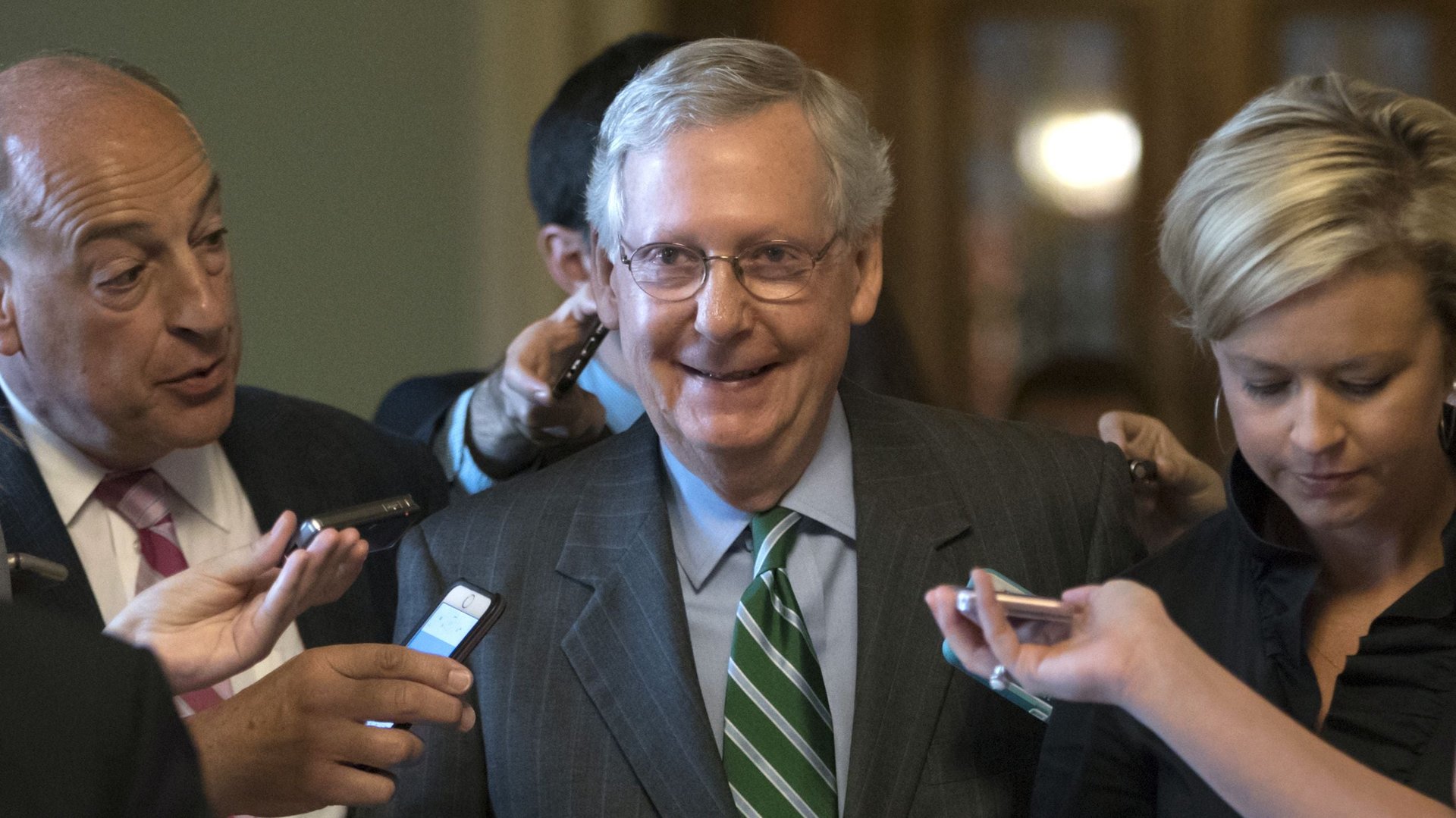Mitch McConnell is rushing to get Brett Kavanaugh confirmed to appease Trump voters
The rush to confirm Brett Kavanaugh as the next US Supreme Court justice—despite growing doubts about his temperament and truthfulness, as well as allegations of sexual misconduct—boils down to one reason: He’s key to getting Trump voters to the polls in November, some Republicans say.


The rush to confirm Brett Kavanaugh as the next US Supreme Court justice—despite growing doubts about his temperament and truthfulness, as well as allegations of sexual misconduct—boils down to one reason: He’s key to getting Trump voters to the polls in November, some Republicans say.
If Republicans can’t get Kavanaugh confirmed, Donald Trump’s supporters will give the party the “middle finger” and not show up at the polls for the Nov. 6 midterm elections, John Fredericks, a conservative talk-show host who was Trump’s campaign chairman in Virginia, told Quartz.
Internal GOP polling of Trump voters shows that Kavanaugh’s confirmation is a make-or-break issue for them, he said. (He would not, however, share the polls.) These internal polls explain why Mitch McConnell is going “nuts,” Fredericks said in an interview on Tuesday (Oct. 2).
Yesterday (Oct. 3), McConnell scheduled a “cloture” vote for Kavanaugh’s nomination, which if successful sets the stage for a final vote on Saturday (Oct. 6), shortly after the FBI closed a hasty investigation into Kavanaugh’s character. Would-be witnesses in the investigation, including Kavanaugh’s former college roommate, say they haven’t heard from the FBI, and the bureau hasn’t interviewed Kavanaugh or Christine Blasey Ford, who accused him of sexual assault when she was 15.
The White House said early on Oct. 4 it was confident that Kavanaugh would be confirmed after the “comprehensive” review.
Kavanaugh could still fail. Several key Republican senators, including Arizona’s Jeff Flake and Lisa Murkowski of Alaska, haven’t committed to supporting him yet. ”If Murkowski votes no, she’s going to sink the GOP for 20 years,” Fredericks predicted.
Trump advisors estimate that about one-third of the 63 million people who voted for Trump in the 2016 election aren’t traditional Republican voters: They were Democrats, independents, or people who rarely or never vote at all. Trump advisors are focused on getting these voters to come to the polls for Republicans in the midterms, and crafted a “Make America Great Again” rally schedule that has the US president on the road dozens of times before November.